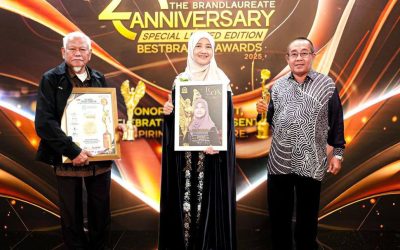Abstract
The attainment and maintenance of high-impact growth are often seen as essential factors for small and medium-sized enterprises’ survival and long-term viability (SMEs). Business coaching has the potential to facilitate and guarantee such progress. Nevertheless, numerous leaders in small and medium-sized enterprises fail to allocate sufficient time and resources toward cultivating staff capacities and facilitating substantial growth inside their organizations. Further investigations are warranted in Malaysia to examine the influence of business coaching on the higher performance of SMEs. This study aims to examine the impact of the outcomes of business coaching on the performance of SMEs in Malaysia. Additionally, the study sought to examine the potential moderating influence of competitive advantage on these relationships. Data was collected from the respondents through a survey questionnaire, while the data analysis process was carried out employing structural equation modeling. The study’s findings indicate a notable and favorable influence of cultural intelligence, coaching culture, and innovation on the growth and performance of small and SMEs in Malaysia. The study suggests it would benefit leaders of small and medium-sized enterprises in Malaysia to actively promote a coaching culture and foster innovation to achieve enhanced growth and performance outcomes.
Introduction
Given the ongoing increase of small and medium-sized enterprises in Malaysia, these entities must ensure sustainable organizational growth. According to Razak (Citation2015), a significant proportion of Malaysian enterprises fall into the small and medium-sized category. SMEs accounted for 96.9% of overall establishments in Malaysia in 2023. The services sector has consistently accounted for over 80% of all SMEs (SME Corporation Malaysia, Citation2024). Malaysia has several national transformation policies, including the National Transformation Programme (NTP), the National Transformation Plan 2050 (TN50), and the National Fourth Industrial Revolution (4IR) (Samsurijan et al., Citation2024). Collectively, these programs sought to address structural challenges, enhance competitiveness, and ensure sustainable development, aligning with Malaysia’s vision 2020 objectives.
Furthermore, it can be argued that Malaysian SMEs have not demonstrated significant achievements, as they have failed to generate the expected impact on economic growth. Malaysian government and small and medium enterprises should organize training seminars for employees of SMEs to provide them with the necessary skills and knowledge to adapt to prospective changes in the service industry effectively. Their findings also indicate that training has a significant role in facilitating the rapid growth of small and medium-sized enterprises.
Moreover, it is beneficial for the leader to manage entrepreneur-coach relationships the commitment of the entrepreneurs contributes to the success of the entrepreneurial coaching relationship (Mohamed & Karoui Zouaoui, Citation2021).
Read more at Taylor & Francis Online : https://www.tandfonline.com/doi/full/10.1080/23311975.2025.2469769#abstract






0 Comments